Omega-3 fatty acids are essential nutrients known for their profound benefits on heart health, brain function, and overall well-being. These polyunsaturated fats cannot be produced by the body, hence must be obtained through diet. This blog delves into various foods rich in Omega-3s, providing insights into their nutritional value and practical tips for incorporating them into daily meals. Understanding these sources is crucial for maintaining a balanced diet and reaping the health benefits that Omega-3s offer.
Salmon
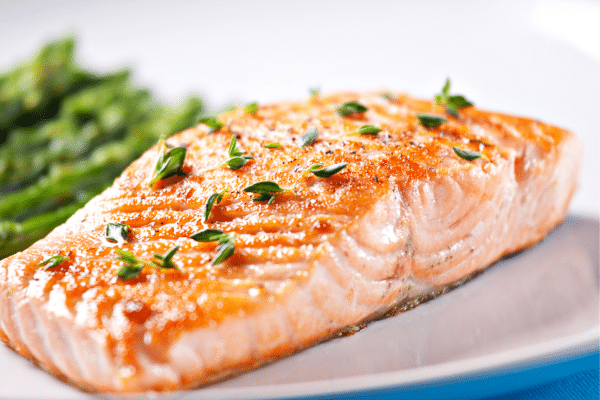
Salmon is revered not only for its rich flavor but also for its high content of Omega-3 fatty acids, specifically EPA and DHA. These nutrients are pivotal for cardiovascular health, potentially reducing the risk of heart disease by decreasing triglyceride levels and blood pressure. Moreover, the brain benefits from these fatty acids, as they contribute to cognitive function and mental well-being. The consumption of salmon is recommended by health professionals worldwide, owing to its dense nutritional profile that encompasses not only Omega-3s but also high-quality protein, vitamins, and minerals.
Integrating salmon into the diet is both versatile and straightforward. It can be baked, grilled, smoked, or even consumed raw in dishes like sushi and sashimi. When preparing salmon, it’s crucial to consider cooking methods that preserve its Omega-3 content. For instance, baking or steaming is preferable over deep-frying. Furthermore, pairing salmon with a variety of vegetables, whole grains, or salads can enhance its nutritional value, making it a cornerstone of a heart-healthy diet.
Flax Seeds
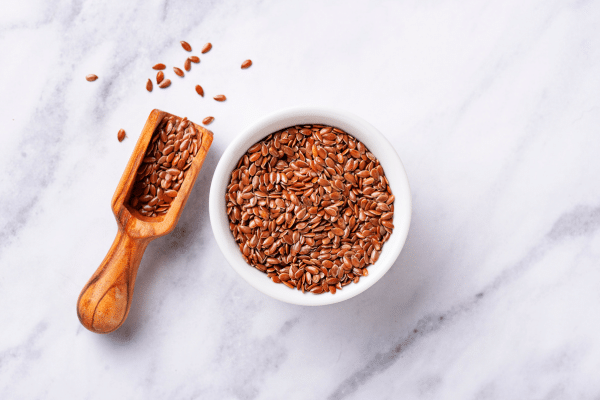
Flax seeds are a powerhouse of nutrition, especially renowned for their high alpha-linolenic acid (ALA) content, a plant-based Omega-3 fatty acid. This makes flax seeds an excellent Omega-3 source for vegetarians and vegans. ALA from flax seeds is known to have beneficial effects on cardiovascular health. It aids in reducing inflammation, lowering cholesterol levels, and maintaining healthy blood pressure. Moreover, flax seeds are a rich source of fiber, lignans, and other nutrients, making them beneficial for digestive health and potentially reducing the risk of certain cancers.
To maximize the benefits of flax seeds, it’s important to understand how to consume them effectively. Ground flax seeds are more beneficial than whole seeds, as grinding makes their nutrients more accessible to the body. They can be added to breakfast cereals, smoothies, or yogurt, providing a nutty flavor and a boost of nutrition. Alternatively, flaxseed oil can be used as a salad dressing or a supplement. However, it’s crucial to store flax seeds and flaxseed oil properly, as they are prone to oxidation and can quickly go rancid.
Walnuts
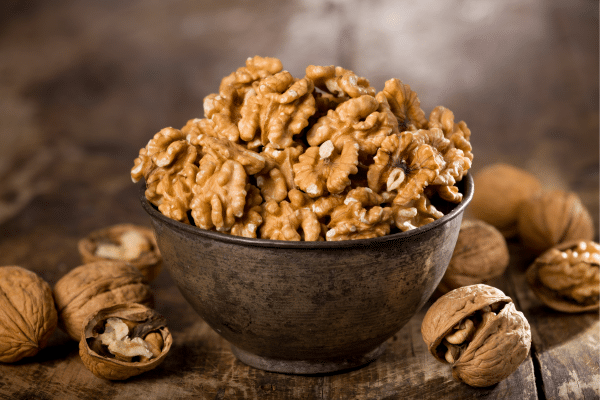
Walnuts are not just a tasty snack; they are a significant source of plant-based Omega-3 fatty acids, particularly alpha-linolenic acid (ALA). Regular consumption of walnuts is associated with numerous health benefits, including improved heart health and a reduced risk of chronic diseases. The Omega-3s in walnuts contribute to the reduction of inflammation and support brain health, making them a valuable addition to a balanced diet. Additionally, walnuts are rich in antioxidants and beneficial phytonutrients, which can protect against oxidative stress and inflammation.
Incorporating walnuts into the diet is both simple and enjoyable. They can be eaten raw, toasted, or as part of various dishes. Walnuts add a delightful crunch and flavor to salads, yogurts, and baked goods. They are also an excellent ingredient in pesto or as a topping for oatmeal and pancakes. When incorporating walnuts into the diet, moderation is key, as they are calorie-dense. However, their nutritional benefits make them a worthwhile addition, providing not only Omega-3 fatty acids but also fiber, vitamins, and minerals.
Mackerel

Mackerel stands out as a rich source of Omega-3 fatty acids among fatty fish, offering substantial amounts of EPA and DHA. These nutrients are crucial for maintaining heart health, supporting brain function, and reducing inflammation throughout the body. Mackerel is also an excellent source of high-quality protein, vitamins B12 and D, and minerals like selenium and iron. Its consumption is often recommended for its potential to improve cardiovascular health and bolster the immune system.
Including mackerel in the diet offers culinary diversity and health benefits. It can be grilled, smoked, or baked, and pairs well with a variety of flavors and ingredients. When selecting mackerel, opting for fresh or properly preserved options is essential to ensure the best taste and nutrient retention. As with other seafood, it’s crucial to be aware of the source of mackerel to ensure it’s sustainably caught and free from high levels of mercury or other contaminants.
Chia Seeds
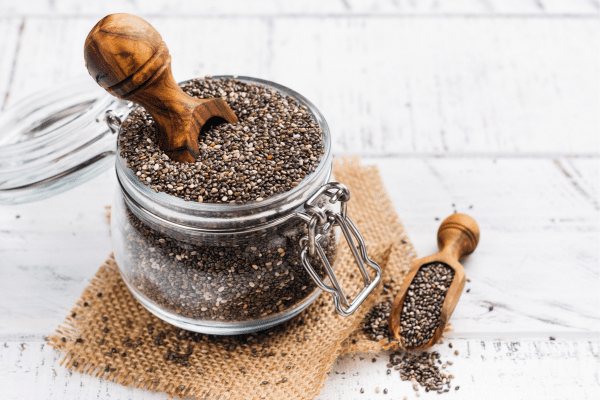
Chia seeds are increasingly recognized for their health benefits, particularly their high content of Omega-3 fatty acids in the form of ALA. These tiny seeds are also loaded with fiber, protein, and various micronutrients, making them a nutritious addition to any diet. The Omega-3s in chia seeds contribute to heart health, reduce inflammation, and may improve cognitive function. Additionally, the fiber in chia seeds can aid digestion and promote a feeling of fullness, aiding in weight management.
The versatility of chia seeds makes them easy to incorporate into meals. They can be sprinkled over breakfast cereals, blended into smoothies, or used as a thickening agent in sauces and puddings. When soaked in water, chia seeds expand and form a gel-like substance, making them a popular ingredient in chia puddings – a simple and nutritious dessert or snack. To maintain their nutritional integrity, chia seeds should be stored in a cool, dry place, away from direct sunlight.
Soybeans
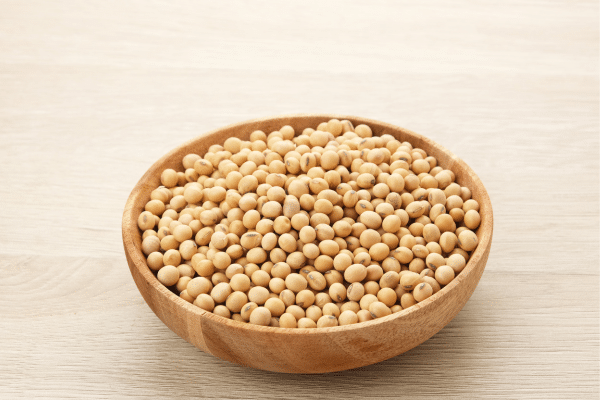
Soybeans are a unique plant-based source of Omega-3 fatty acids, particularly ALA. They are highly regarded for their balanced nutritional profile, providing high-quality protein, fiber, and a range of vitamins and minerals. The presence of Omega-3s in soybeans is beneficial for heart health, potentially reducing the risk of cardiovascular diseases. Furthermore, soybeans contain isoflavones, compounds known for their antioxidant properties and potential to reduce the risk of certain cancers.
Soybeans can be enjoyed in various forms, making them a versatile ingredient in many cuisines. They can be consumed as whole soybeans, tofu, tempeh, or soy milk. Each form offers distinct textures and flavors, suitable for different recipes. When preparing soybeans or their derivatives, incorporating a variety of spices and herbs can enhance their flavor and nutritional value. It’s also advisable to choose non-GMO and organic soy products to avoid potential health risks associated with genetically modified crops.
Oysters

Oysters are not only a delicacy but also a nutritious seafood choice, rich in Omega-3 fatty acids, particularly EPA and DHA. These nutrients are essential for maintaining heart health and supporting brain function. Oysters are also an excellent source of protein, vitamins, minerals, and antioxidants. They are particularly high in zinc, which is vital for immune function, wound healing, and maintaining a sense of taste and smell.
Enjoying oysters can be a unique culinary experience, as they can be consumed raw, steamed, grilled, or baked. Raw oysters should be consumed with caution and purchased from reputable sources to avoid foodborne illnesses. When cooked, oysters can be seasoned and paired with various sauces and sides, enhancing their natural flavors. It’s important to consume oysters in moderation due to their high zinc content, which can be harmful in excessive amounts.
The Bottom Line
Omega-3 fatty acids are crucial for maintaining optimal health, and a variety of foods offer these beneficial nutrients. From the rich, fatty fish like salmon and mackerel to plant-based sources such as flax seeds, chia seeds, and soybeans, there’s a wide array of options to suit different dietary preferences. Including these foods in a balanced diet can contribute to heart health, cognitive function, and overall well-being. By diversifying food choices and preparing meals mindfully, it’s possible to enjoy the myriad benefits that Omega-3 fatty acids provide.


